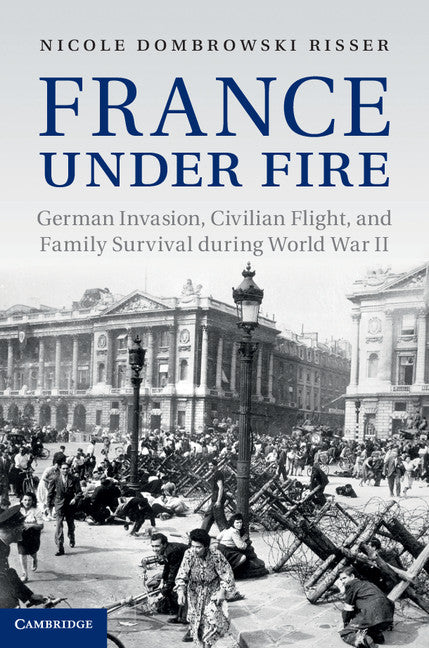Freshly Printed - allow 4 days lead
Couldn't load pickup availability
France under Fire
German Invasion, Civilian Flight and Family Survival during World War II
A social, military and political history of the French refugee crisis tracing the impact of government responses upon civilian lives.
Nicole Dombrowski Risser (Author)
9781107025325, Cambridge University Press
Hardback, published 12 July 2012
328 pages, 4 b/w illus. 3 maps 11 tables
23.5 x 15.8 x 1.8 cm, 0.66 kg
'An ambitious book, [Dombrowski] Risser sets out to examine the intersection of the civilian and military experience under total war by looking at the mass exodus and internal displacement of domestic and foreign refugees in France during World War II.' Lynne Taylor, H-France
'We request an immediate favour of you, to build a shelter for us women and small children, because we have absolutely no place to take refuge and we are terrified!' This French mother's petition sent to her mayor on the eve of Germany's 1940 invasion of France reveals civilians' security concerns unleashed by the Blitzkrieg fighting tactics of World War II. Unprepared for air warfare's assault on civilian psyches, French planners were among the first in history to respond to civilian security challenges posed by aerial bombardment. France under Fire offers a social, political and military examination of the origins of the French refugee crisis of 1940, a mass displacement of eight million civilians fleeing German combatants. Scattered throughout a divided France, refugees turned to German Occupation officials and Vichy administrators for relief and repatriation. Their solutions raised questions about occupying powers' obligations to civilians and elicited new definitions of refugees' rights.
Introduction: no more 'behind the lines'
Part I. Civilians in the Line of Fire: 1. Securing the homeland
2. Mothers move against military and bureaucratic entrenchment
3. Pulling the plug on the city of lights
4. Civilian survival on the open road
Part II. Refugees, Rights, and Return in a Divided Land: 5. Provincial towns feed and shelter refugees
6. Paving the road for refugees' return
7. German exclusions inaugurate a policy of ethnic cleansing
8. Disappointment and despair in the occupied zone
Conclusion.
Subject Areas: Military history [HBW], Social & cultural history [HBTB], 20th century history: c 1900 to c 2000 [HBLW], European history [HBJD], History [HB]


